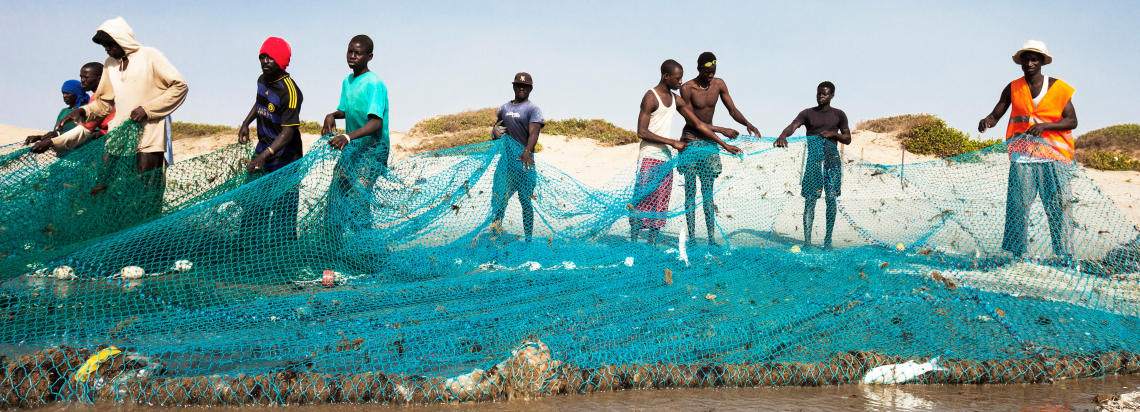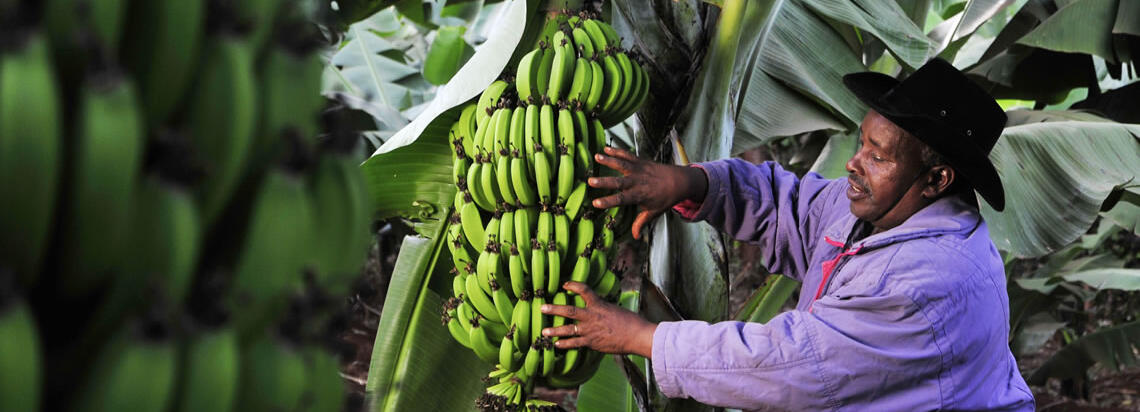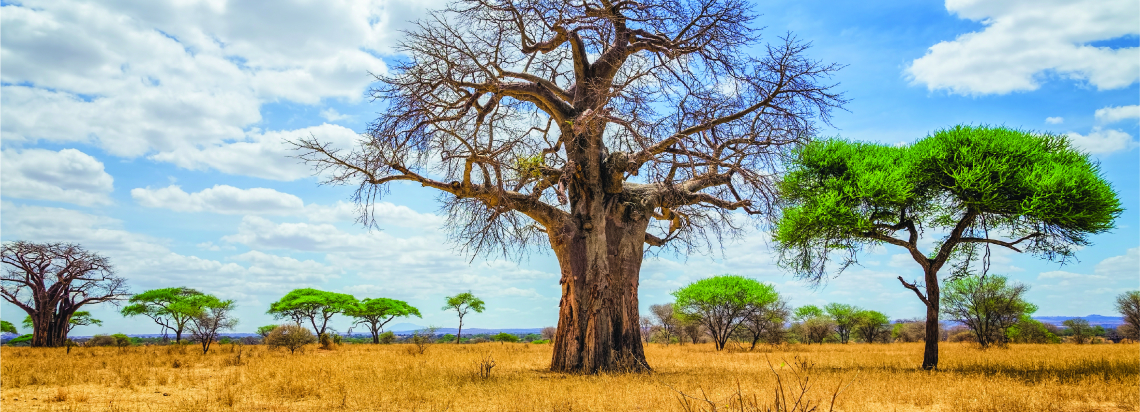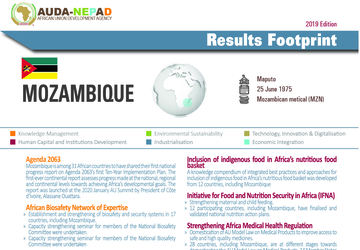 Mozambique
Mozambique
Official Name: Republic of Mozambique
Capital: Maputo
Independence Day: 25 June 1975
Currency: Mozambican Metical (MTN)
Key Result
Mozambique forms part of the first ten countries that will implement the Initiative for Food and Nutrition Security in Africa; a new partnership for nutrition accountability.
Mozambique received USD 2,000,000 to accelerate market-led smallholder development in the Zambezi Valley.
Mozambique was among the AU Member States that endorsed the Policy Framework & Reform Strategy for Fisheries & Aquaculture in Africa approved at the AU Heads of State and Government Summit in Malabo, Equatorial Guinea, 2014.
The Southern Africa Hub Port and Rail Programme aims at responding to Southern Africa challenge in developing sufficient port capacity to handle future demand from both domestic sources and landlocked countries.
Facilitated the appointed of engineers and contracting for the 1500 MW Mphanda Mkuwa Hydropower project in Mozambique.
Mozambique is among the first four countries that have been supported to strengthen the Health Sector’s Response to Tuberculosis and occupational lung diseases.
Mozambique has benefited from funding of 6.0M EUR secured from the EU to support capacity development, research and innovation in water and sanitation in the Southern and West Africa regions through the NEPAD African Networks of Water Centres of Excellence.
A specialist Master’s degree programme in critical care and trauma and maternal and child health has been developed, which is being implemented at the University of Witwatersrand, South Africa and hosted by the academic department at the Instituto Superior de Ciencias de Saude (ISCISA) in Maputo.
Related
Projects

A critical AU Model Law aimed at harmonizing medical products regulatory systems in Africa was endorsed by African Heads of State and Government at the January 2016 AU Summit in Addis Ababa, Ethiopia. The AU Model Law will contribute towards accelerate the regulation of safe, quality and affordable medical products and technologies in Mozambique.


CAADP Compact: Mozambique signed the CAADP Compact on 8-9 December 2011.
Capacity Building: NEPAD supported Mozambique from 3 – 13 December 2012 in conducting an Independent Technical Review (ITR). The ITR is an AUC-NEPAD organised technical peer review process through which National Agriculture and Food Security Investment Plans are examined and discussed in the context of the principles and values of the CAADP agenda.
Business: First CAADP Business Meeting was held on 12 April 2013.
Results:
- Mozambique also increased its budget allocation to agriculture in 2015 to 9 per cent.
CAADP Compact: Mozambique signed the CAADP Compact on 8 - 9 December 2011 and is currently in the advanced stages of implementing the NAIP.
The country has received support on executing a study on agriculture public expenditure; and received technical and financial support in domesticating the JSR guidelines; which subsequently lead to the undertaking of an agriculture JSR exercise.

Project : TAH programme
Description : This is phase I of the continental connectivity programme that focuses on completion and standardisation of the TAH missing links by 2030
Project : Single African Sky phase 1 (design and initial implementation)
Description : Single African Sky is a continental programme that will create a high-level, satellite-based air navigation system for the African continent
Project : Yamoussoukro Decision implementation
Description : Accelerate Yamoussoukro Decision implementation by identifying countries that are ready to fully implement it, and discussing and agreeing with both their governments and airlines to launch the voluntary club on a full membership basis
Project : ICT Enabling Environment
Description : This programme would improve the environment for the private sectors to invest in high-speed broadband infrastructure
Project : ICT Terrestrial for Connectivity
Description : This programme has two main components : secure each country connection by at least two broadband infrastructure and ensure the access to submarine cable to all landlocked countries
Project : Internet Exchange Point (IXP) programme
Description : The aim of this programme is to provide Africa with adequate internet node exchange to maximise internal traffic
Project : North–South Power Transmission Corridor
Description : 8,000 km line from Egypt through Sudan, South Sudan, Ethiopia, Kenya, Malawi, Mozambique, Zambia, Zimbabwe to South Africa
Project : Mphamda-Nkuwa
Description : Hydroelectric power plant with a capacity of 1,500 MW for export on the SAPP market
Project : Beira-Nacala Multimodal Corridors
Description : Rehabilitation/reconstruction of railway and road links, including one-stop border posts along the corridors. Improvement of capacity at the ports, including capital dredging at Beira Port. Natural resources development, including Moatize Coal Field in the Zambezi Valley will use the ports as main export gateways
Project : Southern Africa Hub Port and Rail Programme
Description : This programme aims at responding to Southern Africa challenge in developing sufficient port capacity to handle future demand from both domestic sources and landlocked countries


Technical capacities were strengthened to establish and manage functional biosafety systems for the safe use of modern agricultural biotechnology. Other technical support included national biosafety training workshops, biosafety short courses at African institutions and partner institutions outside Africa, notably at Michigan State University in the USA, biosafety internships, technical consultation support, and biosafety information resources.
Biosafety short courses form an integral component of ABNE activities in Africa. In 2014, ABNE presented a biosafety short course at Makerere University in Uganda and agricultural biotechnology short courses at Michigan State University in the USA. A total of 24 regulators drawn from Ethiopia, Kenya, Malawi, Mozambique, Tanzania, Uganda and Zimbabwe gained broad insights into the basics of biosafety science, policy and regulation, GM crop risk assessment and management, and biosafety communication and awareness creation.
Through high-level policy dialogue, ABNE has also supported Mozambique to fast track the process of establishing functional biosafety mechanisms.

Fisheries and Aquaculture Programme provided support to document lessons learned in Mozambique with IUU (Illegal, Unreported and Unregulated). This exercise increases the knowledge generated for the fisheries sector in Mozambique, and contributes towards efforts aimed at reducing illegal fishing and related activities, in the long term.
Results:
•74 435 women empowered economic and financial terms: Income generation skills; Deployment of technical assistance to boost agriculture production for both consumption and commercial purposes; Accessing agricultural extension services; Promotion of gender inclusiveness in decision making; Creation of enabling environment to access land; Land tenure and legalization of land title for women; Youth job creation; SME management; Informal and Regional Trade development.
Results:
•74 435 women empowered economic and financial terms: Income generation skills; Deployment of technical assistance to boost agriculture production for both consumption and commercial purposes; Accessing agricultural extension services; Promotion of gender inclusiveness in decision making; Creation of enabling environment to access land; Land tenure and legalization of land title for women; Youth job creation; SME management; Informal and Regional Trade development.

ASTI has captured comprehensive information on STI and consequently built in-country capacity to collect, analyse & publish data and information on research & development (R&D) and Innovation

Results (2013 – 2015)
Programme for Enhancing Use of Country Results Frameworks:
• In-country Visits have commenced
• Secured funding for the initiative for the next two (2) years
Development and Piloting of an Africa Extractives Capacity Assessment Framework (ECAF):
• the Africa Mineral Development Centre (AMDC) that is driving the AU Africa Mining Vision (AMV);
• Successful selection and buy-in from the five (5) pilot countries initially selected to refine and contextualize the Framework. The pilot countries are Democratic Republic of Congo, Ghana, Mozambique, Kenya and Uganda;
• In-country capacity assessments successfully carried out in 4 countries towards ensuring the countries effectively utilize the instrument so as to develop and deploy requisite capacities required to achieve the Africa Mining Vision with emphasis on “Mining for Development”;
• The Framework is a practical tool that can be used by other sectors to identify essential capacities (Human, Institutional and Evidence-based knowledge) to ensure effective delivery and impact of the particular sector towards sustainable economic growth.
Advocacy and Strengthening of Negotiation Capacities on Post-2015 Development Agenda through the Common African Position (CAP):
• The multi-stakeholder framework of engagement specifically enhanced dialogue towards ensuring the required mass to influence the Post-2015 Global Agenda and Development Goals relevant to the Continent;
• This intervention helped strengthen country and regional level negotiating capacities for the effective incorporation and articulation of Africa’s priorities as enshrined in CAP in the final Global SDGs;
• The project enabled the participation of African stakeholders at the Means of Implementation Engagement, 3rd Financing for Development Conference and the UN General Assembly that adopted the new SDGs. This ensured the incorporation of Africa’s development priorities into the new goals through developing essential negotiation capacities;
• Through the CAP/SDGs space on the Africa Platform for Development Effectiveness (APDev), knowledge products and negotiation documents, as well as, policy briefs where successfully disseminated to the African negotiators in New York and kept the continent’s stakeholders informed of the overall process;
• Development and dissemination of post-2015 Policy Briefs on “Financing and Partnerships” and “Structural Economic Transformation and Inclusive Growth”. These are priorities outlined in the CAP and the policy briefs where utilized in the negotiation process for the African continent.
Global Partnership for Effective Development Cooperation (GPEDC):
• Africa secured the hosting of the 2nd High Level Meeting (HLM) of the Global Partnership. This was attained through robust negotiation and facilitating a common voice from Africa with regards to this critical engagement by the NEPAD Agency. The 2nd HLM will be held in Nairobi Kenya;
• The NEPAD Agency advocated for the full inclusion and participation of Africa’s Regional Economic Communities (RECs) in conducting the 2nd GP Monitoring Exercise. This was a fundamental achievement considering the RECs are the continent’s building blocks with regards to socio-economic transformation;
• The Africa Action Plan on Development Effectiveness (AAP) was granted the status of an official Global Partnership Initiative (GPI) at the Planning Meeting in Brussels. The AAP was developed by the NEPAD Agency in consultation with African multi stakeholders. This has enabled the Agency to successfully mobilize resources towards the implementation of the AAP.

Project : Transmission-- North South Transmission Line Project
Countries/Region : Egypt, Sudan, South Sudan, Ethiopia, Kenya, Uganda, Tanzania, Malawi,Mozambique, Zambia, Zimbabwe, South Africa, | East and Southern Africa
Project Location : Regional Interconnector-East and Southern Africa
Sector/Subsector : Energy/Transmission
Project Description : Construction of an 8,000 km, 3,000 - 17,000 MW capacity transmission line system from Egypt through Sudan, South Sudan, Ethiopia, Kenya, Uganda, Tanzania, Malawi, Mozambique, Zambia, and Zimbabwe to South Africa, connecting the Eastern Africa Power Pool (EAPP) and the SAPP.

Project : North-South Corridor Road/Rail Project
Description : Construction of a multi-modal trans-continental interconnector
Description : The use of political gravitas and goodwill to unblock and facilitate political bottlenecks affecting the implementation of ICT broadband and optic fibre projects on the continent


- Grow Africa is prioritising the cassava value chain in Mozambique, building on its work to date in creating a cassava value chain platform.
- Grow Africa is also continuing to support and strengthen the agribusiness platform ‘Business Advisory Working Group’ (BAWG) to foster a strong, united voice and platform for public-private dialogue in the sector.

Mozambique received support ($200,000 for the project on “Market led Smallholder Development in the Zambezi Valley”.

A complementary Agricultural and Food Insecurity Risk Assessment study (to the World Bank study) is to be undertaken in Mozambique in 2016. Results from the study will enable the country to develop a national risk management strategy including a Capacity Development component. The outcomes of the study will contribute to designing and implementing appropriate risk management tools and policy instruments.
you agree to the AUDA-NEPAD Privacy Policy.


